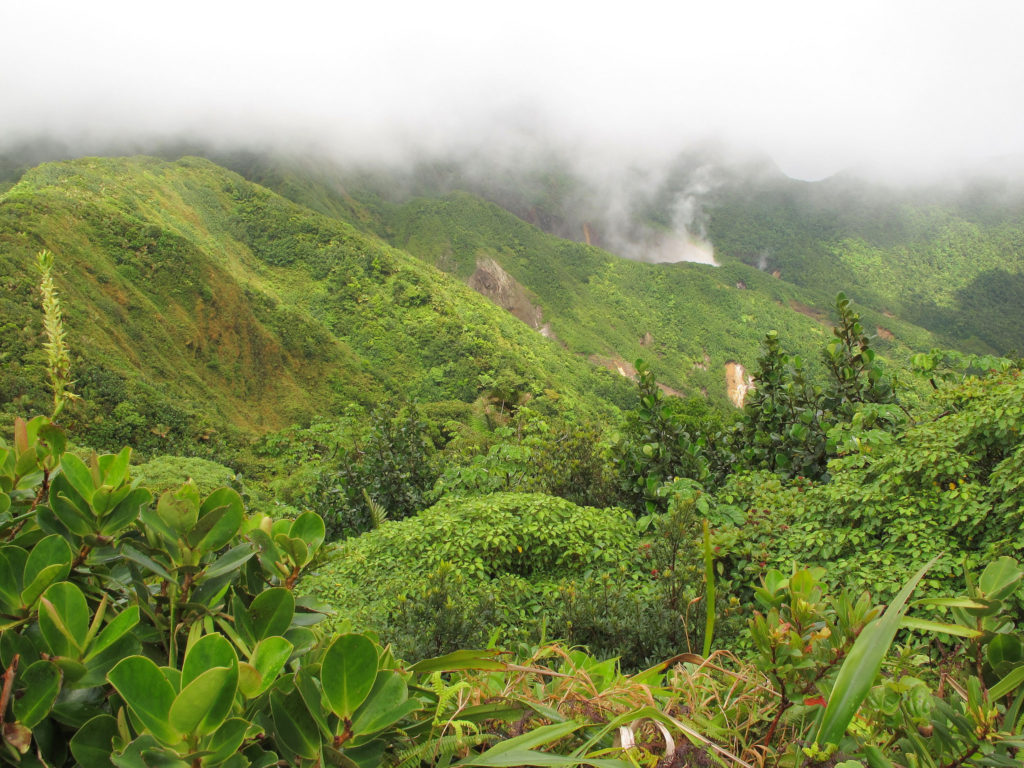
The Morne Trois Pitons National Park, a wild refuge with luxuriant natural tropical forest that blends with volcanic features and its precipitous slopes and deeply incised valleys, fifty fumaroles and hot springs, freshwater lakes, a “boiling lake” and five volcanoes, together with the richest biodiversity in the Lesser Antilles, makes Morne Trois Pitons National Park a rare combination of natural features of World Heritage value. Also, ancient trees, wild orchids and colorful reptiles make this spectacular park a natural reserve of 65 square kilometers, a World Heritage Site since 1997.

Numerous waterfalls hide among the lush and rugged peaks of the Caribbean. Of these, the main one is the waterfall from which the park has taken its name. Those who are not that passionate about the mysticism of nature and prefer action can practice hiking to Lake Boiling, the largest water fumarole in the world. It is located in the southern area of the park and reaching it on foot is an excursion only suitable for the most athletic.
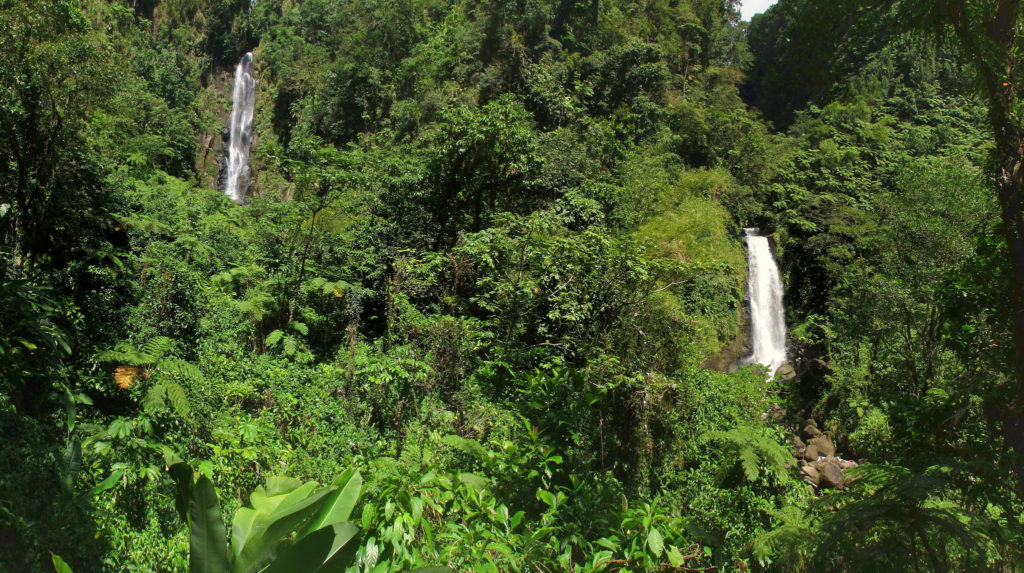
This park is a wonderful place where you will find freshwater lakes, waterfalls, deep valleys, and especially, two of the parrots that are in the greatest danger of extinction in the world, the Sisserou and the Jaco. In addition, the spectacle of Lake Sulfur Springs, with clouds of steam that cover it completely, for the simple fact that its waters are at 95 degrees centigrade.

The island is very mountainous and very little flat ground exists. The mountain is one of the most exciting climbs on the island and perhaps one of the more scenic as well.
Walks to do in Morne Trois Pitons
Valley of Desolation
This is a spectacular area of sulfur springs, hot pools and mini-geysers en route to the Boiling Lake. Much of the vegetation has been destroyed in the area, hence the name. Scattered throughout the valley floor are brightly colored hot springs, the greys, blues, blacks, greens, yellow, browns and oranges are the result of minerals from the water which have been deposited on the stream beds; some of the rocks are also covered with yellow sulfur crystals.
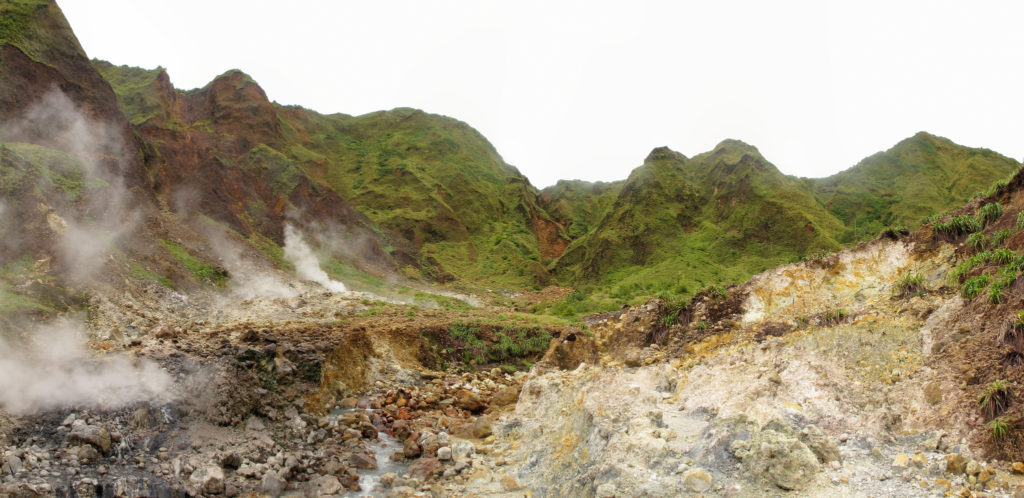
The Boiling Lake
The most famous of Dominica’s trails, the Boiling Lake is a flooded fumarole reached after a hard 3-4 hour hike (one-way) from the village of Laudat. However, it’s well worth it – the Lake is a cauldron of bubbling greyish-blue water that is usually enveloped in a cloud of vapor. The lake is known as the world’s second largest boiling lake, at approximately 200 ft (63m) across.
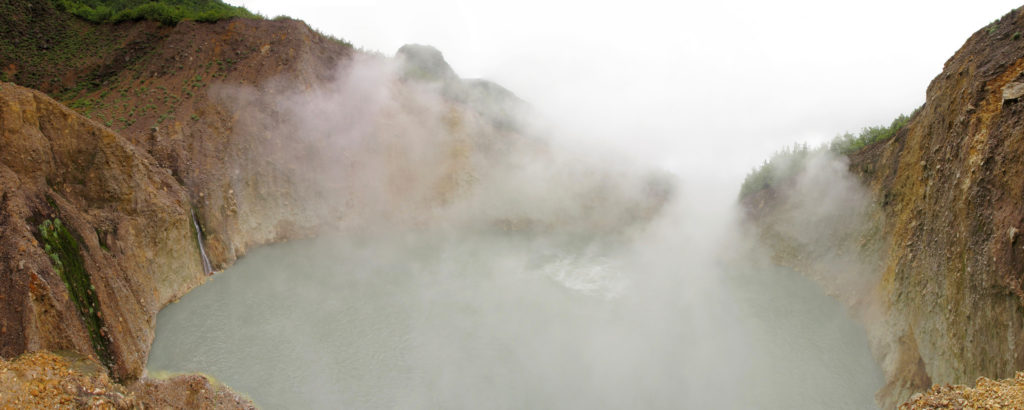
Titou Gorge, Laudat
This delightful spot is at the start of the hike to the Boiling Lake and is a small waterfall deep in a water-filled gorge. It can be a cold swim, but there’s also hot water close by, making it a refreshing stop at the end of the hard Boiling Lake hike!

Laudat, Boeri Lake
The Boeri lake is another example of a crater lake. The Boeri Lake is the highest lake in Dominica at an altitude of 2,850 ft. (869 m) and, as such, is often shrouded in mist. Located on the slopes of Morne Micotrin in Morne Trois Pitons National Park, it can be reached by a trail a little over 1 mile (45 minutes walk) from the Freshwater Lake.
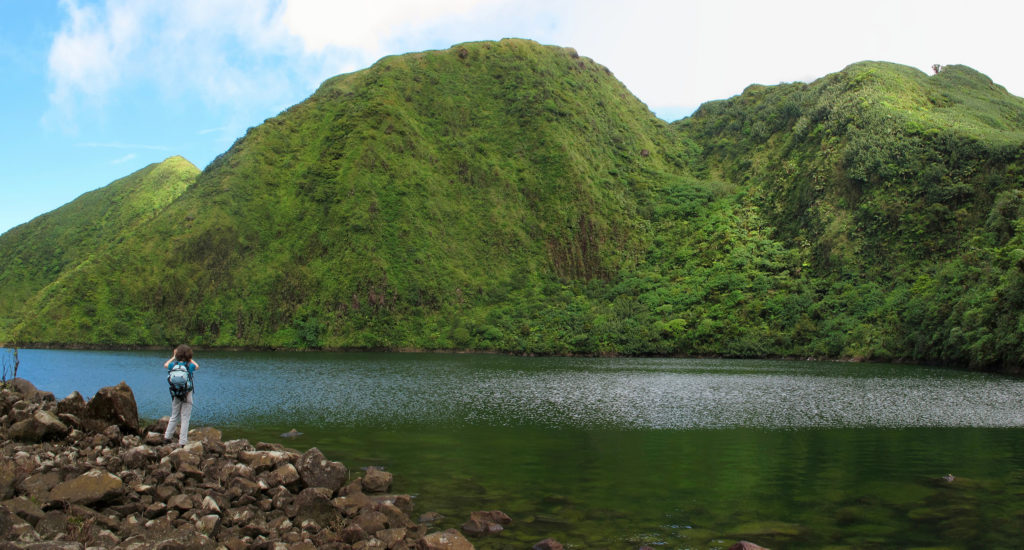
Freshwater Lake
One of the main sources of Titou Gorge, Trafalgar Falls and the Roseau River. This is another one of Dominica’s lakes with volcanic origin. It was dammed in the ’90s for the hydro scheme.
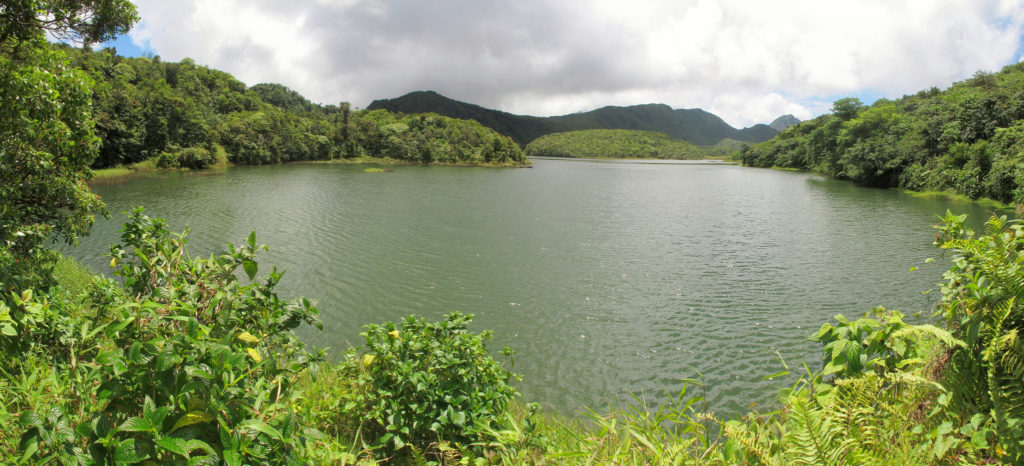
Chemin Letang Trail
This old trail connects the east coast to the capital Roseau and was for many years the main ‘highway’ across the island.
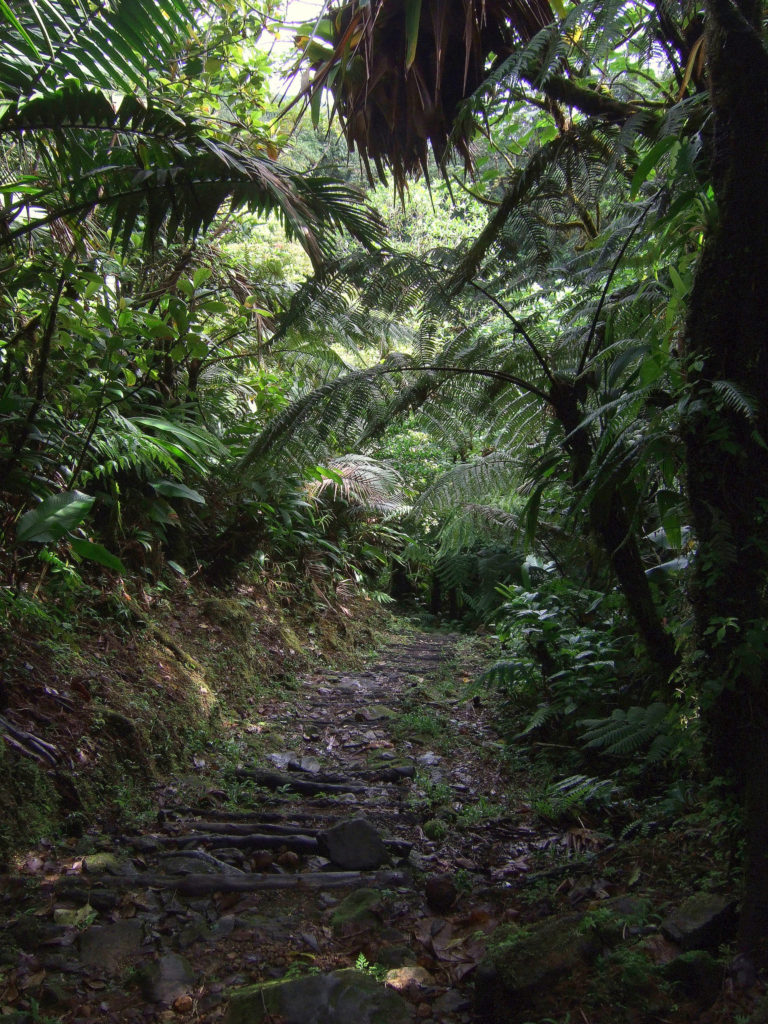
The Morne Trois Pitons National Park has been a protected space for several decades, being the first in the whole country. This park was created with the objective of protecting the great number of mountains, water currents, species and tropical virgin forests that exist there and that are one of the biggest attractions of the island.
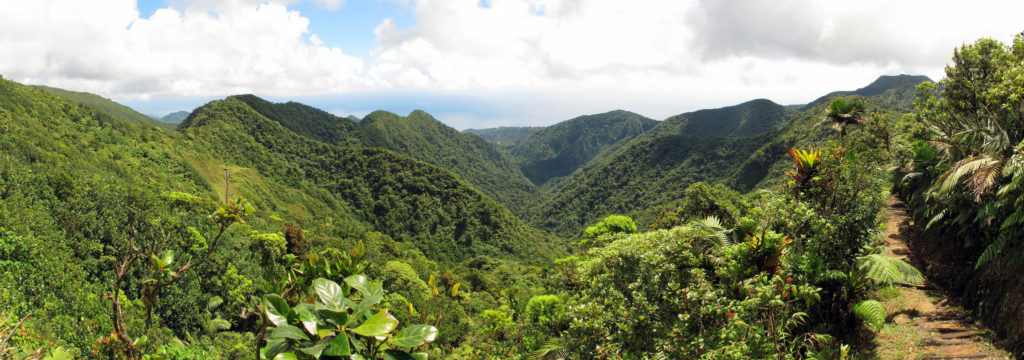
If you loved this article or found it useful, don’t forget to share it with your adventurous and travel-hacking friends! If you want more post like this, follow us on Youtube, Instagram, Pinterest, Twitter or Facebook and subscribe to our newsletter!


